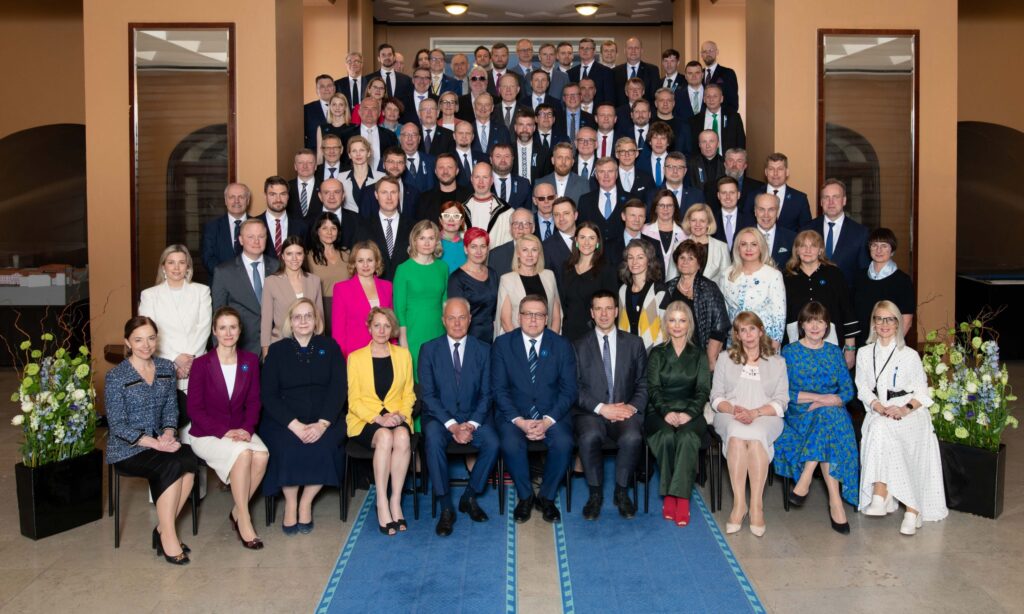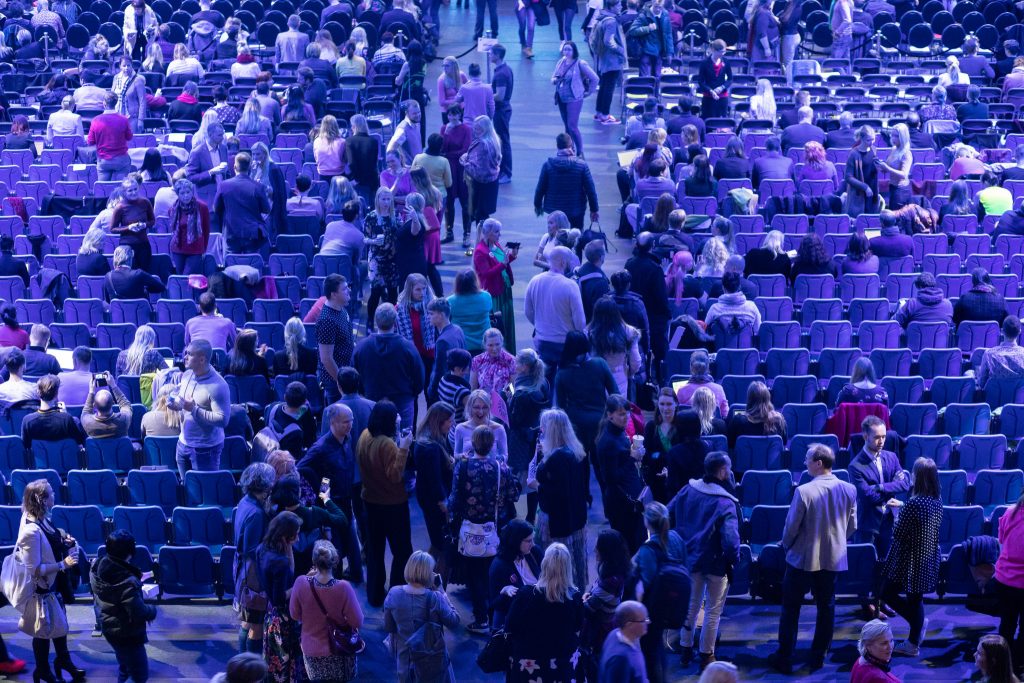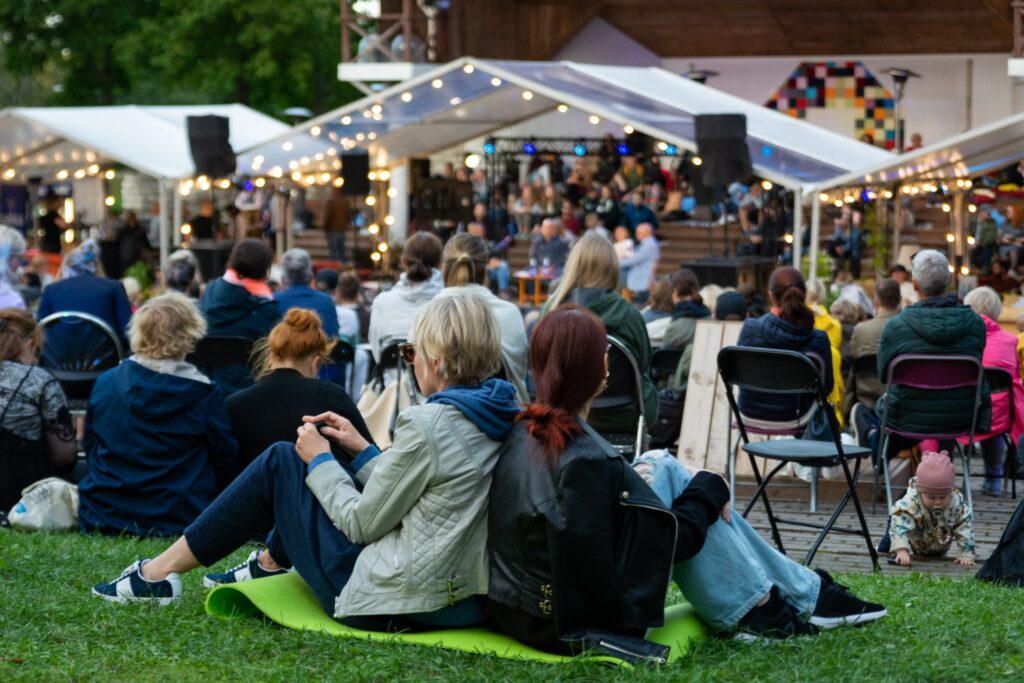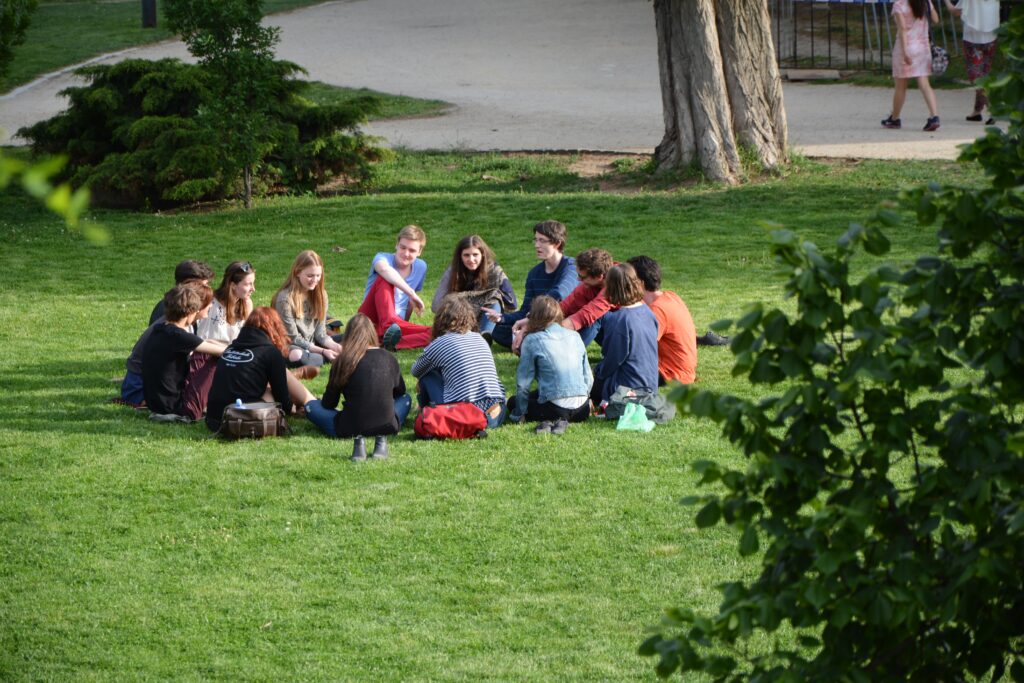Estonia needs a new form leadership, based on empathy and discussion skills, and people who can work together and reshape their ideas and beliefs, based on open dialogue with the people around them, Bart Cosijn, a discussion moderator and a participation expert, writes.
This is the English version of opinion article published in Estonian newspaper Eesti Päevaleht.
How come that Estonian politics seems to be in a continuing crisis? The parliament is not functioning very well with recurring hostilities and disagreements about its proceedings. And the government is in a constant hurry, introducing measures and new laws with little time for consulting the society. In these times of haste, powerplay and low trust, it is time to rethink the role of leadership in Estonia.
The core idea of elective democracy is that the best decisions arise from proper debate among politicians who represent as many groups in society as possible. This means that, first: politicians must listen to people and understand dilemmas people face daily. And second: they must listen to each other. Effective political debate only works when politicians listen carefully to their opponents and well structure their counter arguments.
For example, Tanel Kiik of the Centre Party joking during a pre-election debate that the presence of the Estonian Conservative People’s Party leader Martin Helme “makes the debate more colourful” is not helping. Kiik’s job as a politician is to bring forward counter arguments, based on his beliefs – for example, on why the European Green Deal is not “the most aggressive redistribution of wealth since the Bolshevik Revolution”, as Helme stated.

The second essential element of fruitful discussion is one we often tend to overlook: next to expressing our own ideas, we must take responsibility for others to express theirs as well. Exactly at this point, the Estonian society is facing serious challenges. The country’s president, Alar Karis, was right when he warned at a speech given on the Day of Restoration of Independence that the ability to politely agree to disagree is in decline. Too often the idea of public discussion or political debate is limited to the idea that expressing your standpoints as widely as possible is the main goal.
No tradition of asking questions
Let me point out here that the freedom of expression is one of the cornerstones of a free and democratic country. Understanding Estonian’s history and seeing how many voices are suppressed around the world, we must fight every day for this freedom.
Still, meaningful public discussions must be based on reciprocity: being able to express your ideas gives you the direct responsibility to listening to and try to understand the ideas of others. Just adding to a pile of opinions does not create new insights or quality discussion, let alone meaningful decisions.
In my observation, the current problem around the culture of public discussion in Estonia is threefold.
At conferences or panel discussions, there is no tradition of asking questions or making comments in public. Estonian people listen very carefully but rather process what they hear in their own head. Maybe they have a chat in private with a friend or close colleague afterwards. Understanding the history of Estonia and the dangers around expressing in public space during the Soviet occupation, this is more than 30 years later still understandable.

The second issue is directly related: the chicken-egg problem of giving audiences the floor. Estonia has one of the highest income inequalities in the EU. This translates into public discussions which are often hierarchically structured: the opening words are by the highest person in rank, then all the important guests speak, and in the end, there is time for “three short questions”. “Does anyone have a question?” says the moderator staring in the dark hall. They pause for a few seconds, adding, “If not, I have some more questions myself.”
Inability to listen to others
If we don’t empower people to engage in public discussion, they won’t raise their hand. Planning question and answer session all in the end signals a clear message: nice that you showed up, dear audience, but this event is not about you, it is about the speakers.
The good news is that there are very dedicated people in Estonia trying to change this culture. Like the organisers of Opinion Festival, working very hard every year to change Paide in the biggest public agora of Estonia. The World Cleanup Day, kickstarted by Let’s Do It! World. Or the Citizen Initiative Portal, rahvaalgatus.ee, enabling people to put issues on the agenda of the parliament.

The third problem is the lack of role models. Observing Estonian politics, I can’t help but notice an absence of participatory policy making. New coalitions come to power with great ambition – in itself very good in a democracy – but they do it so hastily that civil organisations, companies and other groups in society feel like bystanders. The inability – or unwillingness – to emphatically listen to ordinary citizens, community leaders, NGOs and companies in times between elections sets an example to young people: pushing your vision is much more important than trying to understand what others observe and think.
We must focus on education. At the beginning of the school year, I was standing in the middle of 90 schoolkids in a sunlit auditorium. We were discussing the following question: “What would you do when you find a 20 euro bill on the street?” One student said: “I will keep to myself.” “But why?” I asked. “Because I found it.” Another student makes a reservation: “Maybe you should first look around to see if anyone has lost the money.”
Learning how to discuss these types of philosophical questions is crucial if we want young people to grow into responsible and engaging citizens. This is not the philosophy of thick books with complex texts. It is about day-to-day moral, social or conceptual dilemmas. Who should decide what you learn in school? Is it fair that some children receive more pocket money than others? Do young people have a right to be listened to?
Engage in meaningful discussions
Every week, I teach discussion skills and skills for critical thinking to young people in Estonian schools. Learning how to express your ideas, provide argumentation, summarise, ask questions is important for when you want to participate in a discussion. Many people in Estonia will acknowledge this.

Still, we should be worried that young Estonians grow up in a world that values speaking over listening. At the same time, there are positive signs of change. Estonians are slowly embracing a more open discussion culture where the roles of speaker or audience are not that static anymore as they used to be.
I believe Estonia is ready for a new form leadership, based on empathy and discussion skills. This country needs people who can work together and reshape their ideas and beliefs, based on open dialogue with the people around them. Only bringing your vision forward and hoping as many people as possible are willing to listen is not enough anymore in times of great social, economic, geo-political and climatological challenges.
Let’s empower new generations to actively participate in any group or public discussion on any topic that is dear to them. And to the generations now in power I say: become better role models. Show that you can engage in meaningful discussions with the people around you, again and again. And when others speak, don’t think about what you will say next, but be an emphatic listener.

